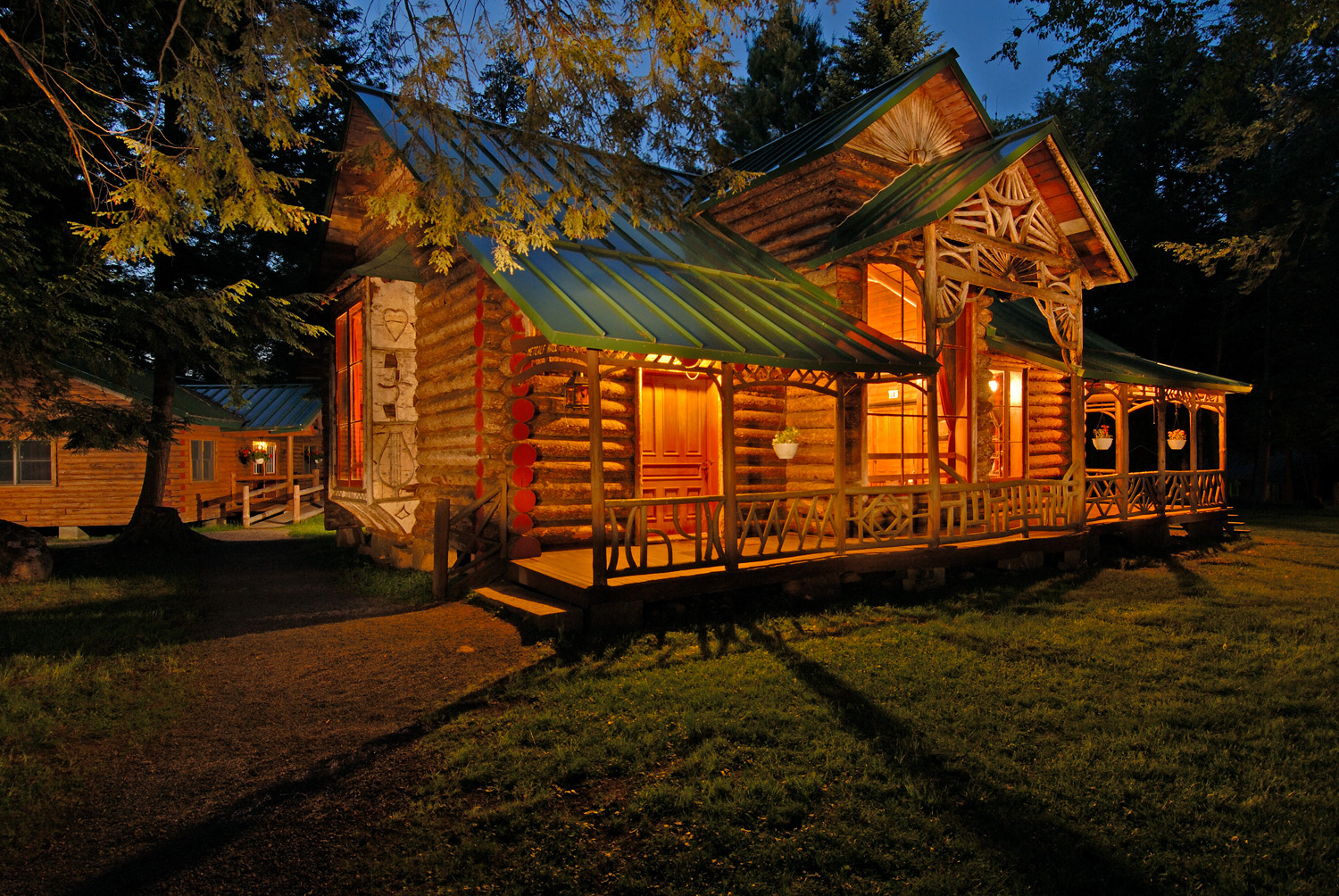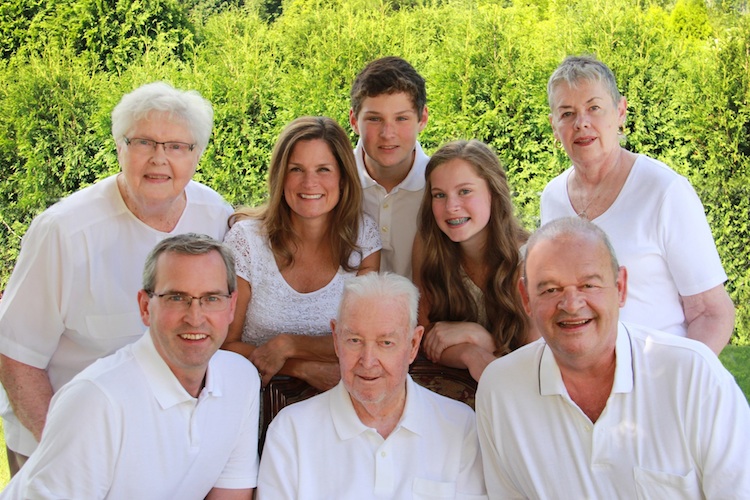Bulletin News

10/31/2014
Lynne Parks Hoffman ’68 believes two great influences enabled her to seize opportunities and succeed in life: Her caring family and her education at SUNY Cortland.
Both are reflected in Parks’ latest gift to the College, a $1 million bequest to strengthen programming and student access at SUNY Cortland’s outdoor education facilities made in honor of her father and the family he nurtured and inspired.
All four of the facilities, including the two Adirondack properties Camp Huntington - the only SUNY property designated as a National Historic Landmark - and Antlers, will now be operated as the William H. Parks Family Center for Environmental and Outdoor Education. In addition to the two Raquette Lake properties, the Parks Family Center for Environmental and Outdoor Education includes the Robert C. Brauer Memorial Education Center in Selkirk, N.Y., the Hoxie Gorge Nature Preserve near Cortland, and the center’s main office on the SUNY Cortland campus.
“Assisted by Lynne’s generosity, we hope to be able to provide a transformational outdoor education experience to every SUNY Cortland student who desires it,” President Erik J. Bitterbaum said. “Lynne’s continued support of the College’s mission is extraordinary. This gift will change many young lives in positive ways.”
Parks’ naming donation in support of SUNY Cortland’s environmental and wilderness programs is her second $1 million gift to the College. In 2008, she became SUNY Cortland’s very first $1 million donor by naming the Lynne Parks ’68 SUNY Cortland Alumni House.
Parks, a former teacher, business owner and world traveler, made her first Cortland gift to honor her sorority, Nu Sigma Chi, and her late husband, Jack Hoffman, a successful attorney. She wanted her second major gift to recognize an even earlier positive influence in her life: Her father, William H. Parks.
“Everything really started with what he did for us - me, my mother, my stepmother and my brothers,” Parks explained. “He is quite a guy and really, in my mind, stands for what they mean when they talk about ‘The Greatest Generation.’ He served in World War II, came home, worked hard and built a life for his family.”
That solid foundation helped Lynne, who lives in Palm Desert, Calif., and her siblings launch successful professional lives of their own. Her brother Robert, who lives in Portland, Ore., is retired from Intel Corp. Her brother John is an engineering executive with Plug Power, a hydrogen fuel-cell manufacturer near Albany, N.Y.
Parks’ mother, Audrey, passed away when Lynne Parks was a freshman at SUNY Cortland. Her father married his current wife, Parks’ stepmother Margaret, before Parks graduated from college, and she has been part of Parks’ life for nearly half a century.
At 94, William Parks is an engaging and witty storyteller who still loves life and doesn’t believe he has done anything out of the ordinary. He says he stays limber by climbing the four sets of stairs in his split-level home and ends each day by sipping a Manhattan. Two, if his wife isn’t looking.
“I plan to live to be 100,” William Parks said. “That’s my ambition now.”
Like many members of “The Greatest Generation,” Parks appreciates life as a gift that shouldn’t be taken for granted. As a young man, he served in the Coast Guard during World War II, first guarding Manhattan Beach with a rifle that had no bullets — all the ammunition was being used by combat troops — and then as a medic in the Pacific. He followed the landing force that invaded Okinawa, kept men from bleeding to death during surgeries in shipboard operating rooms and helped rescue English prisoners of war.
He returned home to Yonkers, N.Y., started a family, and began a 43-year career with a national carpet and floor covering company now known as Mohasco Industries. When the company moved, he relocated his family to Amsterdam, N.Y., where Lynne Parks grew up and where William and his wife still live. When Mohasco shifted operations to Georgia, Parks went to work for an independent company selling fireproof carpeting to airlines. He didn’t stop working until he was 73.
William Parks’ work ethic, determination and enthusiasm for living mirror the values Lynne Parks experienced as a physical education student at SUNY Cortland. Part of that experience was wilderness education at Raquette Lake. Although she admits that lugging gear through the mountains and portaging canoes through forests wasn’t her favorite part of college, she said it helped build the self-reliance she needed to succeed in professional challenges throughout her life.
Those challenges included moving across the country to California as a young, freshly minted teacher, and then overseas to teach and manage recreation programs in Japan and Germany for the U.S. Army and Air Force. Her SUNY Cortland experience helped give her the confidence she needed to eventually earn a master’s degree in business administration at Portland State University and start her own event planning company, RSVP Events.
Lynne Parks’ naming gift for SUNY Cortland’s outdoor education programs will provide critical funding needed to enhance the College’s ability to provide transformational experiences
| A $1 million naming gift from Lynne Parks Hoffman '68 has created the William H. Parks Family Center for Environmental and Outdoor Education. The family, moving clockwise from the bottom center, is William H. Parks, John Parks, Margaret Parks, Diane Parks, Ryan Parks, Natalie Parks, Lynne Parks Hoffman '68, and Robert Parks. |
to students from nearly all disciplines.
Currently, areas of study that offer programming in one of SUNY Cortland’s wilderness facilities include teacher education, history, physical education, recreation, biological science, geology, professional writing, and art and art history. These will grow and expand, as will the College’s ability to help students overcome barriers to outdoor education, such as cost or transportation to remote locations.
The new programming support aims to complement physical investments being made by the College in both Antlers and Camp Huntington, and raise the importance of outdoor and environmental education as a defining factor of a SUNY Cortland education.


